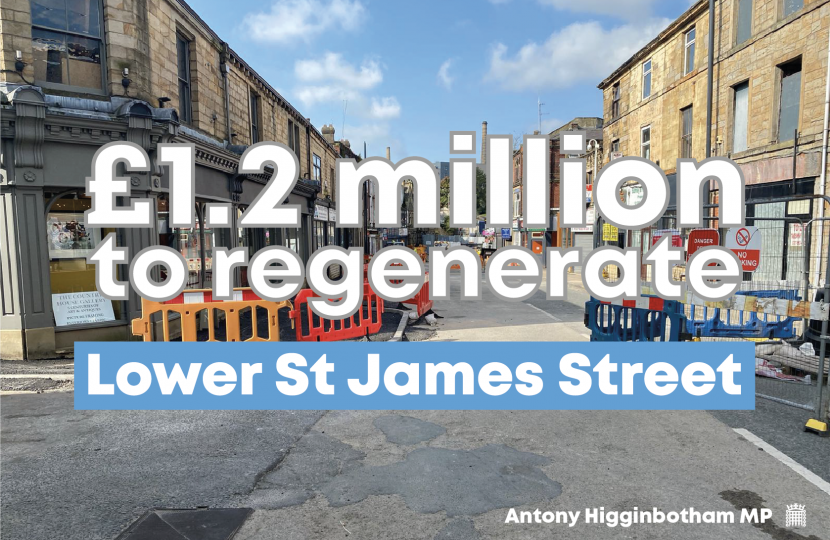
14 historic high streets across the North West, including Burnley and Bacup in East Lancashire, have been offered government funding to give them a new lease of life and help them recover from declining footfall and the impact of the Covid-19 pandemic
The £95m government-funded High Streets Heritage Action Zone programme, which is delivered by Historic England, is intended to unlock the potential of the high street, fuelling economic, social and cultural recovery.
Burnley's High Street Heritage Action Zone is centred on Lower St James' Street, which is a key thoroughfare through the town, defined by Victorian buildings. A key building in the area is the Grade II listed Empire Theatre which is the sole survivor of five variety music halls in Burnley and the only purpose-built Victorian theatre of its kind in East Lancashire. Now being restored by the Burnley Empire Trust, the building has been on the Theatres at Risk Register since it began in 2006.
Burnley was confirmed as a recipient of the scheme last year, allowing work to commence already, and it has now been confirmed that the total Government funding will be £1,261,420, delivered through Historic England. The work, which is already underway, will see the street landscape improved to attract new businesses and footfall to the area, joining up the growing student population and Burnley's town centre.
Commenting on the news local MP Antony Higginbotham has said that “this is part of our agenda to level up across the country” and that Lower St James Street “will benefit from much needed upgrades, bringing it in line with other recent developments in the town centre”.
I want to see the high streets of Burnley and Padiham thriving again and have made this clear to the Government. Lower St James Street hosts a number of historic buildings that are in desperate need of regeneration, and I’m pleased to see that the Government has taken action by providing this much needed funding.
Connecting the town centre with the new developments on Sandygate is great, and alongside recent spending commitments in Padiham, will ensure that both high streets can bounce back after Coronavirus.
The High Streets Heritage Action Zone initiative in England is funded with £40 million from the Department for Digital, Culture Media and Sport’s Heritage High Street Fund and £52 million from the Ministry of Housing, Communities and Local Government’s Future High Street Fund.
A further £3 million will be provided by the National Lottery Heritage Fund to support a cultural programme.
On top of this £95 million, the government’s unprecedented £1.57 billion Cultural Recovery Fund will help to tackle the impact the pandemic has had on our most loved arts organisations and heritage sites and breathe new life into historic high streets across the country.
The High Street Heritage Action Zone scheme includes £7.4 million to fund four years of cultural activities across the country to engage communities with their local high streets, and celebrate the role and importance of these historic areas as hubs of the community. The Cultural Programme is led by Historic England, in partnership with The National Lottery Heritage Fund and Arts Council England. The money will fund two arms of the programme, the first is grants distributed through cultural consortia set up by Local Authority partners. These consortia will work with artists and creative organisations local to the high streets to develop their ideas and deliver activity.
The second part of the programme is a series of national cultural commissions. Historic England is asking creatives to respond to briefs that include capturing the everyday spirit of high streets, and connecting high streets across the country; this will include a large-scale outdoor arts celebration of the high street and a four year photography commission to document the changing face of the high street. Further commissions will be announced in each year of the cultural programme.
Catherine Dewar, North West Regional Director at Historic England, said:
Our high streets bring people together. They are places to socialise, shop, run businesses and be part of our local community. Every high street across the North West has a distinctive history that can be harnessed to help it achieve a prosperous future.
Investing in heritage improves people’s lives – it means looking after and celebrating the places at the heart of our communities, and the buildings and public spaces which define their character. This investment through our High Streets Heritage Action Zone scheme will unlock the potential of these precious 14 high streets and help them thrive again.


